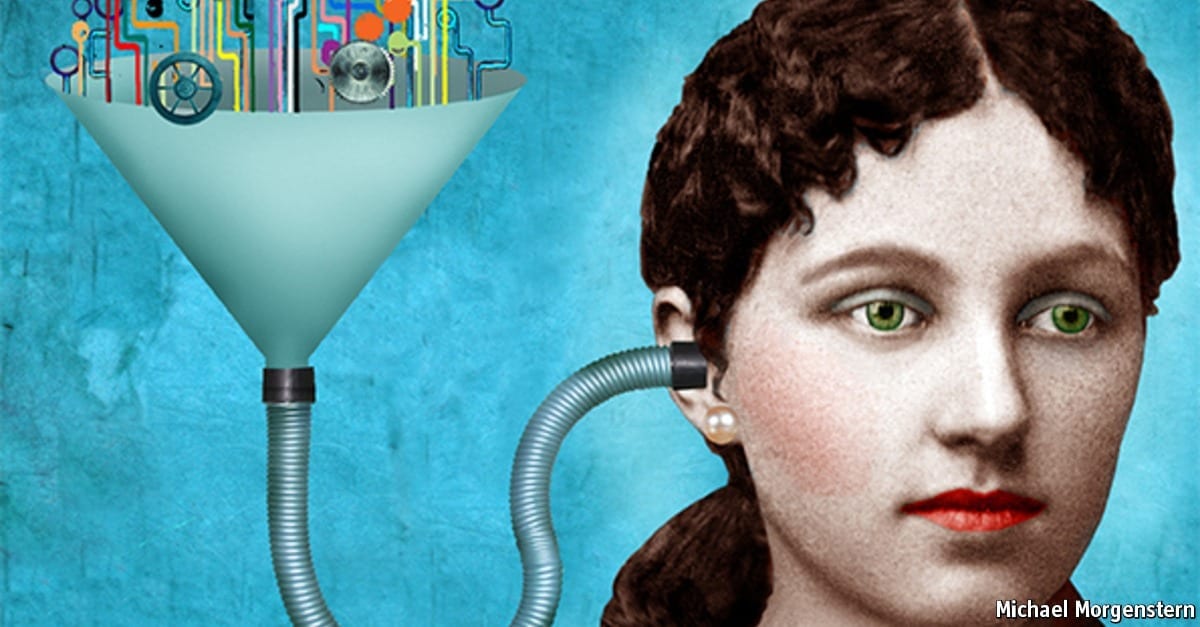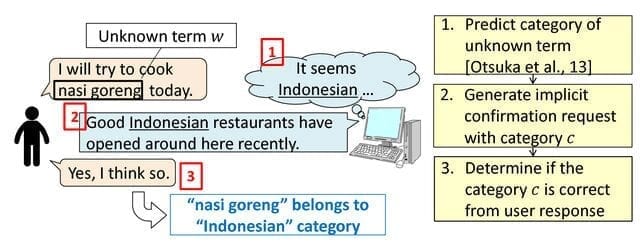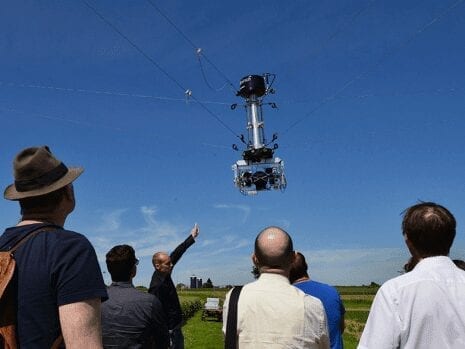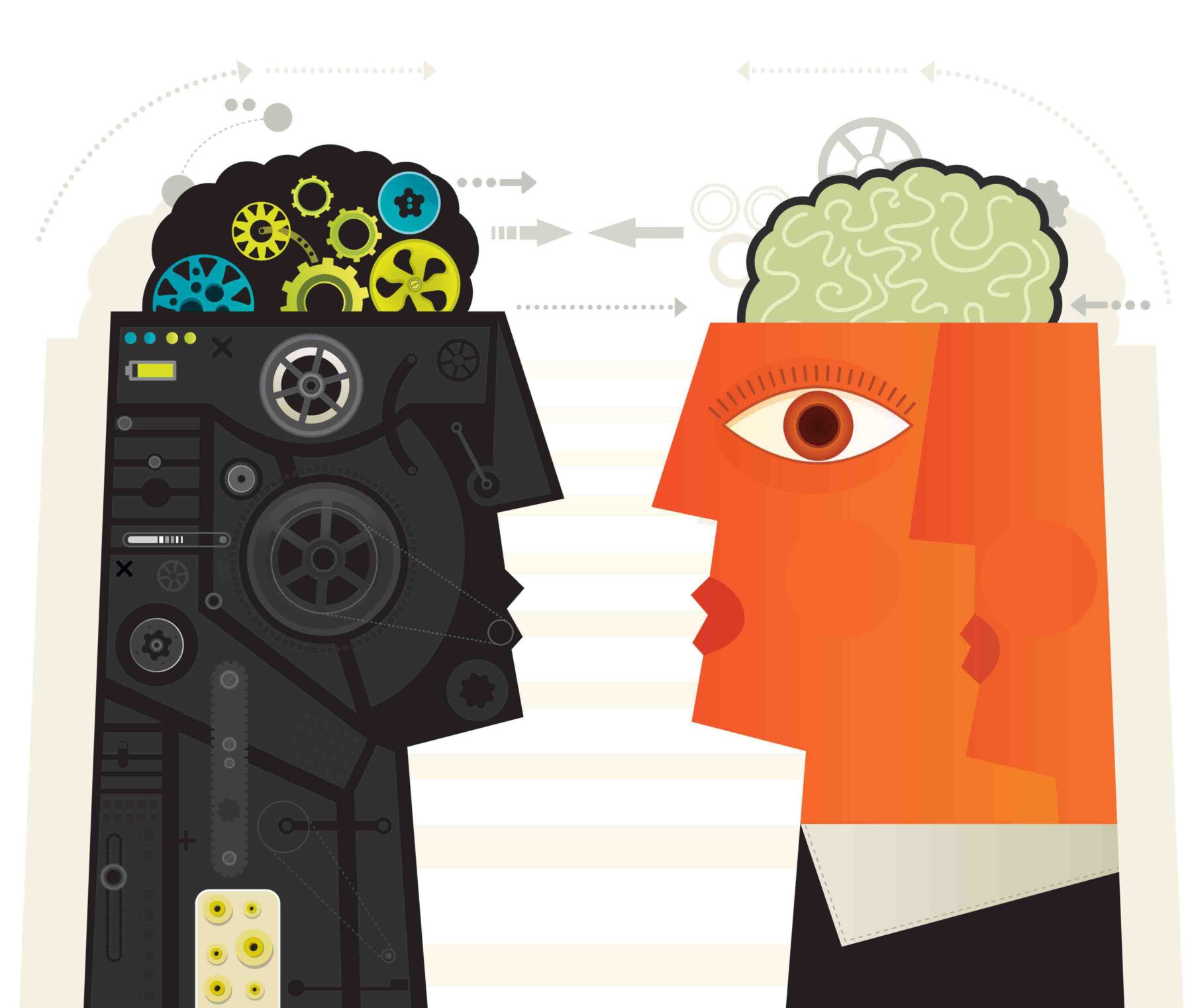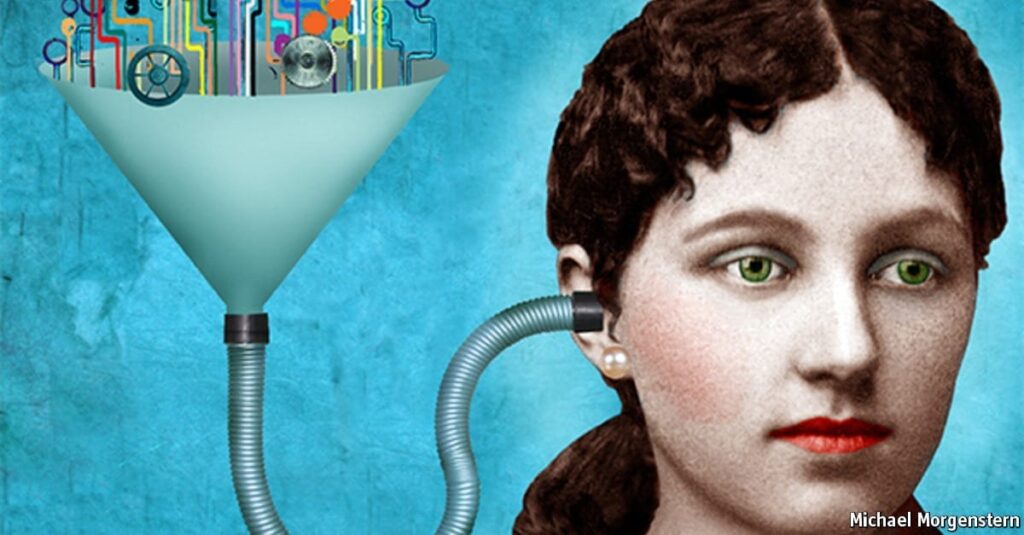
Re-educating Rita
IN JULY 2011 Sebastian Thrun, who among other things is a professor at Stanford, posted a short video on YouTube, announcing that he and a colleague, Peter Norvig, were making their “Introduction to Artificial Intelligence” course available free online. By the time the course began in October, 160,000 people in 190 countries had signed up for it. At the same time Andrew Ng, also a Stanford professor, made one of his courses, on machine learning, available free online, for which 100,000 people enrolled. Both courses ran for ten weeks. Mr Thrun’s was completed by 23,000 people; Mr Ng’s by 13,000.
Such online courses, with short video lectures, discussion boards for students and systems to grade their coursework automatically, became known as Massive Open Online Courses (MOOCs). In 2012 Mr Thrun founded an online-education startup called Udacity, and Mr Ng co-founded another, called Coursera. That same year Harvard University and the Massachusetts Institute of Technology got together to form edX, a non-profit MOOC provider, headed by Anant Agarwal, the head of MIT’s artificial-intelligence laboratory. Some thought that MOOCs would replace traditional university teaching. The initial hype around MOOCs has since died down somewhat (though millions of students have taken online courses of some kind). But the MOOC boom illustrated the enormous potential for delivering education online, in bite-sized chunks.
The fact that Udacity, Coursera and edX all emerged from AI labs highlights the conviction within the AI community that education systems need an overhaul. Mr Thrun says he founded Udacity as an “antidote to the ongoing AI revolution”, which will require workers to acquire new skills throughout their careers. Similarly, Mr Ng thinks that given the potential impact of their work on the labour market, AI researchers “have an ethical responsibility to step up and address the problems we cause”; Coursera, he says, is his contribution. Moreover, AI technology has great potential in education. “Adaptive learning”—software that tailors courses for each student individually, presenting concepts in the order he will find easiest to understand and enabling him to work at his own pace—has seemed to be just around the corner for years. But new machine-learning techniques might at last help it deliver on its promise.
Adapt and survive
At the moment, adaptive-learning techniques work best in areas where large numbers of pupils have to learn the same material and a lot of data can be collected, says Mr Ng. Geekie, a Brazilian adaptive-learning startup, guides pupils through the high-school syllabus in thousands of the country’s schools. Other startups working in this area include Knewton, Smart Sparrow and DreamBox. Education giants are also paying attention. McGraw-Hill bought ALEKS, another adaptive-learning system, in 2013; Pearson recently announced an expansion of its partnership with Knewton. In a report published in February, Pearson suggests that AI could make learning “more personalised, flexible, inclusive and engaging”. Such systems do not replace teachers, but allow them to act as mentors rather than lecturers.
Even outside the AI community, there is a broad consensus that technological progress, and artificial intelligence in particular, will require big changes in the way education is delivered, just as the Industrial Revolution did in the 19th century. As factory jobs overtook agricultural ones, literacy and numeracy became much more important. Employers realised that more educated workers were more productive, but were reluctant to train them themselves because they might defect to another employer. That prompted the introduction of universal state education on a factory model, with schools supplying workers with the right qualifications to work in factories. Industrialisation thus transformed both the need for education and offered a model for providing it. The rise of artificial intelligence could well do the same again, making it necessary to transform educational practices and, with adaptive learning, offering a way of doing so.
“The old system will have to be very seriously revised,” says Joel Mokyr of Northwestern University. Since 1945, he points out, educational systems have encouraged specialisation, so students learn more and more about less and less. But as knowledge becomes obsolete more quickly, the most important thing will be learning to relearn, rather than learning how to do one thing very well. Mr Mokyr thinks that education currently treats people too much like clay—“shape it, then bake it, and that’s the way it stays”—rather than like putty, which can be reshaped. In future, as more tasks become susceptible to automation, the tasks where human skills are most valuable will constantly shift. “You need to keep learning your entire life—that’s been obvious for a long time,” says Mr Ng. “What you learn in college isn’t enough to keep you going for the next 40 years.”
Learn more: Re-educating Rita
The Latest on: Artificial intelligence
[google_news title=”” keyword=”Artificial intelligence” num_posts=”10″ blurb_length=”0″ show_thumb=”left”]
via Google News
The Latest on: Artificial intelligence
- Breaking Barriers: Leveraging Artificial Intelligence to Tackle Global Financial Crimeson April 27, 2024 at 8:33 pm
Financial crimes pose a significant global issue, manifesting in various forms and causing physical, psychological, or financial harm. These crimes often result in penalties from state or other ...
- ICMR-NIRRCH To Hold Workshop On Applications of Artificial Intelligence and Machine Learning in Disease Informatics, Detailson April 27, 2024 at 8:30 pm
New Delhi- The Indian Council of Medical Research (ICMR) and National Institute for Research in Reproductive and Child Health (NIRRCH) are going to organise a workshop on “Applications ...
- Can artificial intelligence decipher your political affiliation?on April 27, 2024 at 6:39 pm
The Big Weekend Show' analyzes the possibilities of artificial intelligence when it comes to influencing voters.
- Pope Francis to Attend G7 Summit to Speak on Artificial Intelligenceon April 27, 2024 at 9:51 am
Italian Prime Minister Giorgia Meloni announced that the Holy Father accepted her invitation. Pope Francis will attend the G7 summit in June to speak about the ethics of artificial intelligence, ...
- Nvidia Owns a 3.4% Stake in This Innovative Artificial Intelligence (AI) Stock Cathie Wood Loveson April 27, 2024 at 5:58 am
Nvidia's second-largest holding is a 3.4% stake in Recursion Pharmaceuticals ( RXRX 3.57%). The company is using AI to mine data and discover new potential drugs. And if it successfully develops a ...
- How Artificial Intelligence Is Changing The Way You Buy Travel Insuranceon April 27, 2024 at 3:52 am
Artificial intelligence is transforming the way you buy travel insurance. Here are the surprising ways it could affect your next vacation.
- Growing concern that artificial intelligence could pose new cybersecurity threatson April 26, 2024 at 9:26 pm
As the capabilities of AI systems increase, so too do the risks of attacks on banks, infrastructure and elections, expects say.
- The U.S. Needs to ‘Get It Right’ on Artificial Intelligenceon April 26, 2024 at 6:59 pm
Artificial intelligence has been a tricky subject in Washington.Most lawmakers agree that it poses significant dangers if left unregulated, yet there remains a lack of consensus on how to tackle these ...
- Pope to bring his call for ethical artificial intelligence to G7 summit in June in southern Italyon April 26, 2024 at 10:22 am
Pope Francis is taking his call for artificial intelligence to be developed and used according to ethical lines to the Group of 7 industrialized nations.Italian Prime Minister Giorgia Meloni announced ...
- Steve Aoki Has No Problem Using Artificial Intelligence To Build Tracks: ‘You Can’t Stop AI… You Just Have To Ride The Wave’on April 26, 2024 at 8:37 am
Steve Aoki talks to Billboard about embracing artificial intelligence in making music and the importance of Asian representation in the biz.
via Bing News







